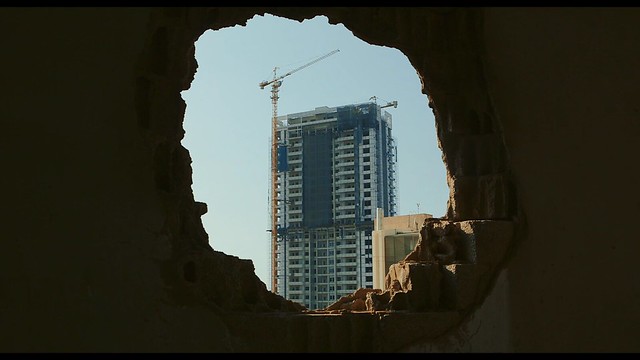
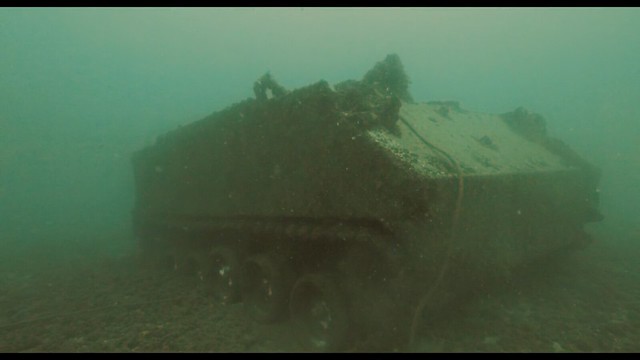
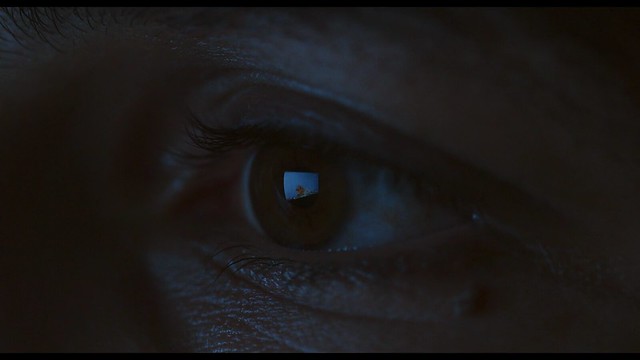

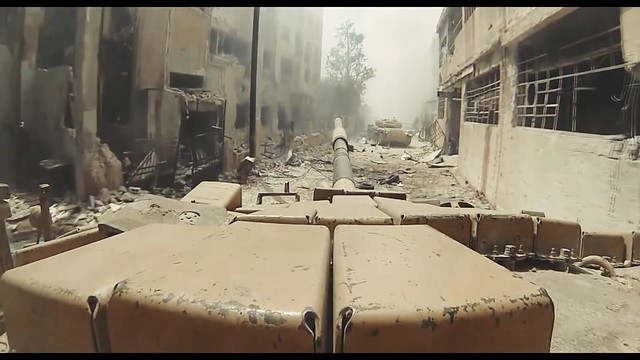
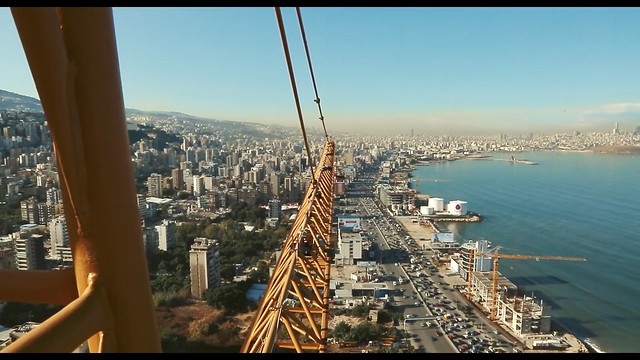
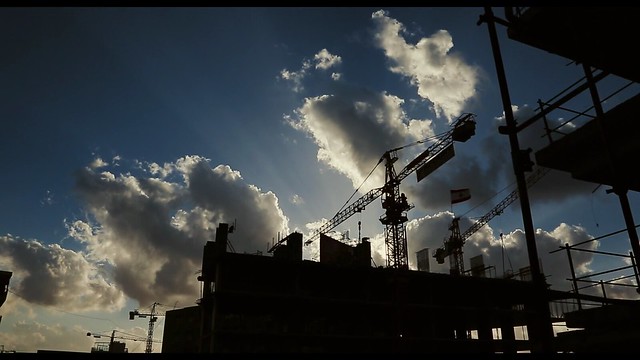
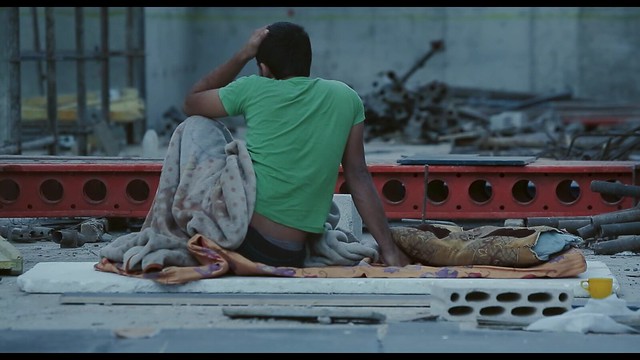
It starts with a voice over. In it, a man remembers his construction worker father coming home from Lebanon. Holding his rough worker's hands, he as a boy could smell the concrete off of it. Dad also brought a poster of a white sandy beach and framed by a couple of swaying palm trees against the blue sky. the boy had never seen the ocean before.
Beirut has seen many wars. Because of that, the city is in perpetual construction boom. As the Syrian war turns its 7th year and the end nowhere in sight, Ziad Kalthoum's Taste of Cement rightfully juxtaposes the urban destruction of Aleppo with the neighboring country's relatively well to do city-by-the-sea. These are Syrian workers. As their fathers as migrant workers, worked to rebuild Beirut in the 80s, they are repeating their father's footsteps, but mostly as refugees. If the recent film The Insult was any indication - as unsubtle as that film was in portraying deep seeded prejudices and rift between the two countries, these workers are living under constant fear of prejudices and retaliation.
Kalthoum's lens serenely captures these workers in their work place - as they wake up from the concrete floor and emerge from the hole, taking a lift to a dizzying height, working in a highly dangerous environment. At night, everyone's glued to their phones, flipping through the photos of destruction of their homeland - of the mangled concrete and metal. TV blares terrible news from home, reflecting in their eyes. The unending lift ride, measured panning and camera placement all the way up in the crane that features the bird's eye view of the affluent city with many high skyscrapers on the lush slopes, hugging the beautiful coastline. The camera even dives in to the emerald water, reminding us the war past.
With close ups and silent moments, Kalthoum's visuals have lyricism and sensuality of Claire Denis' work. But once it gets to the matching POV footage of construction cranes slowly panning over the Beirut skyline and tank gunner pointing at its next target, and the real footage of rescue effort to dig out the civilians trapped in collapsed concrete buildings, you realize that Taste of Cement is much more than, say, Terry Malrick's pretty, contemplative picture show.
Concrete smell is the smell of travel and also the smell of death. It's also the smell of rebuilding and smell of destruction. Kalthoum achieves something miraculous here. Something tangible and important. Something that is arty enough for the public already jaded and numbed by the sheer stupidity of the world and don't care anymore, to care.